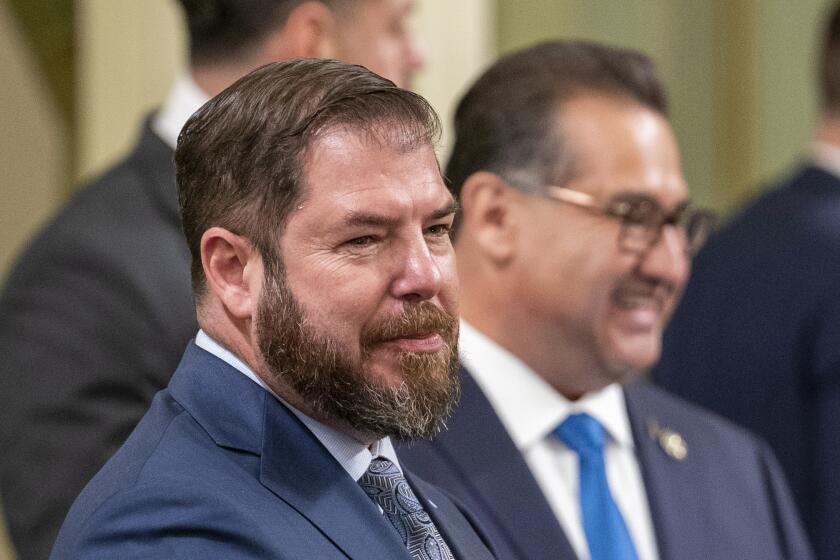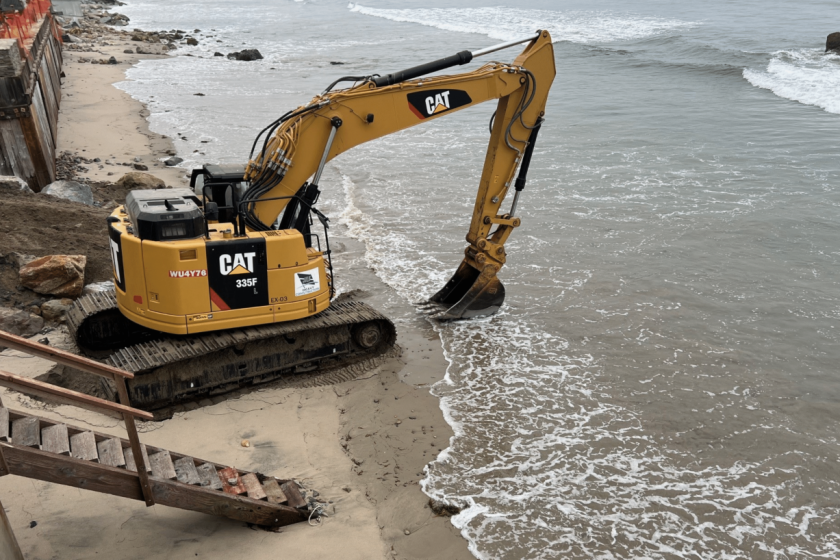State Agency to Investigate S.F. Blackout
As the city eased back to normal Wednesday and began tallying its losses from a massive blackout, state regulators announced that they will investigate the reliability of the power system here.
The Pacific Gas & Electric Co. attributed Tuesday’s electrical outage to a mistake by workers. But Richard Bilas, president of the California Public Utilities Commission, said that his agency “requires an in-depth accounting of the causes and effects of a power outage on this scale.”
Paul Clanon, director of the PUC energy division, said the blackout should not have cascaded from one substation to the next, leaving more than a million people without power for the better part of Tuesday.
The outage was caused accidentally by a four-person crew upgrading a substation Tuesday in San Mateo. The crew forgot to remove two grounding rods, causing a blowout and triggering a chain reaction that knocked generators off line.
Clanon said that the PUC has the power to force changes in the beleaguered utility’s operations in the aftermath of the outage, which hit 435,000 customers in San Francisco and its southerly neighbors.
While fines upward of $1 million are possible, “it’s premature for anyone on the commission to say that fines are warranted in this case,” Clanon said.
Retailers and city departments spent much of Wednesday figuring out the blackout’s financial toll. And within 24 hours of the outage, more than 600 customers had called PG&E; requesting claim forms for reimbursement. In addition, the utility set up a hotline for claims, has made its claim forms available on its Web site. The company expects to have thousands of customers file claims.
The outage turned the Coach flagship store on Union Square into a leather goods ghost town Tuesday and cost the store between $10,000 and $15,000 in lost sales, said store manager Scott Williams.
“It was brutal, huge,” said Williams, whose company is considering filing a claim. “This is crunch time, the last three weeks before Christmas. We lost the bulk of our day. It was ugly. People who drove into town and saw places closed turned around and went elsewhere.”
At the Virgin Megastore on Market Street, manager David Purcell said the blackout “had a major impact on our sales for the day.”
“One of the biggest parts of the day is the local business from downtown coming in, and we lost that,” said Purcell, whose store also is deliberating whether to file a claim against PG&E.;
Officials at the San Francisco Municipal Railway, which operates the city’s public transit, estimate that the system lost about $50,000 in fares alone--not including the expense of employee overtime.
In addition, Mayor Willie Brown had declared a state of emergency, allowing all Muni riders to commute for free Tuesday until midnight. The combination was a hefty loss in revenues, said spokesman Alan Siegel.
Brown would not estimate the losses incurred by the city during the six-hour fiasco. However, he said during a Wednesday morning news conference that all department heads have been told to tally up their extra costs.
“Once all of this is clear, the city attorney’s office will argue about the compensations due or not due,” Brown said.
On Wednesday, PG&E; said the outage was more widespread than thought, affecting 435,000 customers rather than the 375,000 estimated a day earlier.
Besides the PUC’s study, the utility has begun its own investigation into the outage that caused its president to issue repeated public apologies.
“Our investigation will focus on what happened with the crew,” said PG&E; spokeswoman Diana Gapuz. “We want to hear their side of what occurred. . . . We’ll make a determination of what if anything needs to be done, in terms of disciplinary action.”
Generally, the city was operating smoothly Wednesday. Traffic lights blinked, cash registers clanged and the public transportation system offered uninterrupted service to commuters throughout the region.
Bay Area Rapid Transit service, which resumed Tuesday afternoon, gave its customers “a normal commute, a good commute, very smooth,” said spokesman Mike Healy. “No electrical problems cropped up.”
Researcher Norma Kaufman contributed to this report.
More to Read
Sign up for Essential California
The most important California stories and recommendations in your inbox every morning.
You may occasionally receive promotional content from the Los Angeles Times.











